Five natural plants offer you authentic musk-like fragrances without animal-derived ingredients. Ambrette seeds provide a sweet, brandy-like aroma, while angelica root delivers honey-musky undertones. Labdanum's sticky resin captures Mediterranean musk notes, and wild hibiscus seeds yield a complex woody fragrance. Ancient spikenard rounds out these options with its deep, earthy musk profile. Each botanical alternative tells its own aromatic story waiting to be discovered.
Ambrette Seeds: Nature's Original Musk
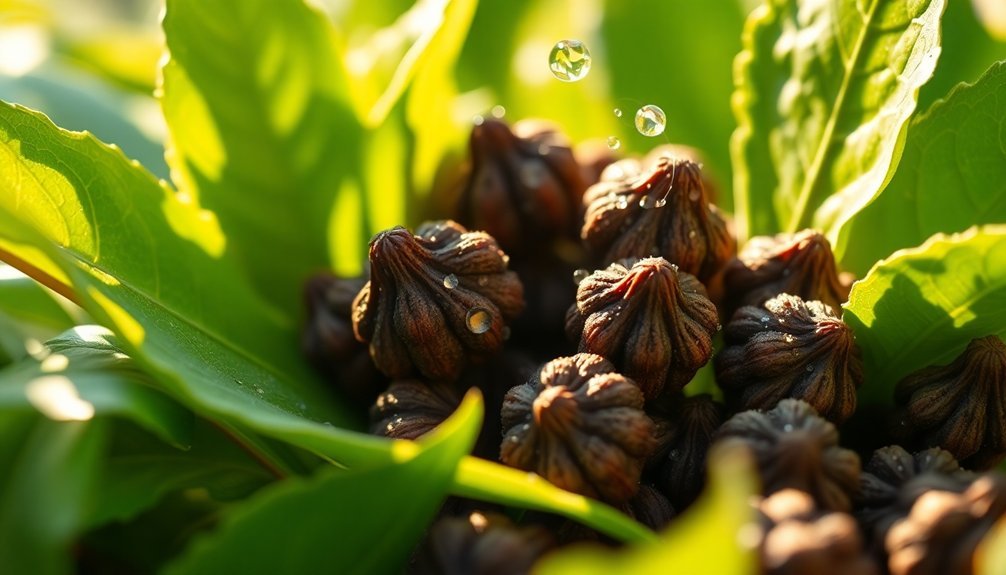
Among the most prized natural musk substitutes, ambrette seeds from Abelmoschus moschatus stand out for their rich, sweet aroma that closely mimics animal musk.
You'll find this tropical Asian plant's seeds delivering a complex fragrance profile that combines floral, brandy-like, and tobacco notes.
If you're working with fragrances, you'll appreciate ambrette's versatility as both a base note and occasional top note.
The seeds' extract contains ambrettolide, which gives off a clean, sweet scent with subtle berry undertones.
You can extract the fragrant compounds through steam distillation, solvent extraction, or supercritical CO2 processing, with the latter yielding the highest quality oil.
The seeds don't just smell great – they're also edible and have been traditionally used in spice blends, liqueurs, and even coffee flavoring. The name ambrette comes from the Arabic phrase abu-l-mosk, reflecting its musk-like properties.
Angelica Root's Musky Magic
While ambrette seeds offer a sweet musk-like scent, angelica root brings its own musky charm to the fragrance world.
You'll find this remarkable root carries a strong, fragrant odor that's often compared to both musk and juniper. When you bruise the fresh root, it releases a honey-colored juice packed with aromatic compounds.
The root can weigh up to three pounds when harvested at full maturity.
If you're planning to harvest angelica root, you'll want to dig it up in autumn of its first year.
Make sure you dry it quickly and store it properly to preserve its musky magic. The root contains a complex blend of compounds, including volatile oils, acids, and a unique substance called Angelicin.
When properly dried, the root maintains its distinctive scent profile – initially sweet, then warming to a bitterish, musky aroma that's distinctly different from other plants in its family.
Labdanum: The Mediterranean Musk Bearer
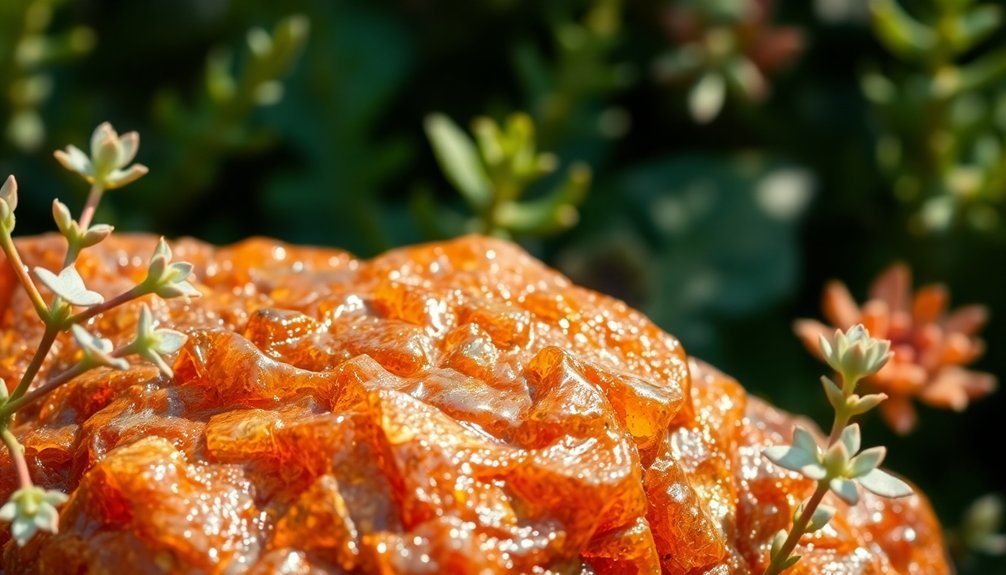
Nestled in the Mediterranean's sun-drenched landscapes, Labdanum stands out as nature's premier musk-bearer.
You'll find this evergreen shrub thriving in the rocky soils of Spain, France, and Morocco, where it grows up to 8 feet tall and produces striking white flowers with maroon-spotted petals.
What makes Labdanum truly special is its sticky resin coating, which you can harvest from its dark green leaves during late spring.
This aromatic substance isn't just prized in perfumery for its musky scent – it's also valued for its medicinal properties. You can use it to treat catarrh and diarrhea, thanks to its antibiotic effects.
While you'll need to be careful with its flammable nature, this Mediterranean native offers both fragrant and therapeutic rewards when properly cultivated in well-drained soil and full sun. Traditional harvesters collect the resin by dragging a rake through the plant to gather its valuable essence.
Wild Hibiscus: The Floral Musk Alternative
The enchanting Hibiscus Abelmoschus, commonly known as Wild Hibiscus or Ambrette, offers a sustainable alternative to traditional animal musk in perfumery.
You'll find this evergreen shrub native to India, where it's called Mushkdana or Kasturi Bhendi, growing up to one meter tall with bright yellow flowers.
The plant's kidney-shaped seeds yield a precious oil that captures a soft, sweet, and woody fragrance reminiscent of animal musk.
You can detect complex notes of wine, brandy, fruit, and tobacco as the scent develops.
While the extraction process is labor-intensive, yielding only 0.2% to 0.6% oil, it's worth the effort.
Perfumers often blend it with vetiver, labdanum, patchouli, and sandalwood to create rich musk accords, making it invaluable in modern sustainable perfumery.
Spikenard: Ancient Earth's Musky Secret
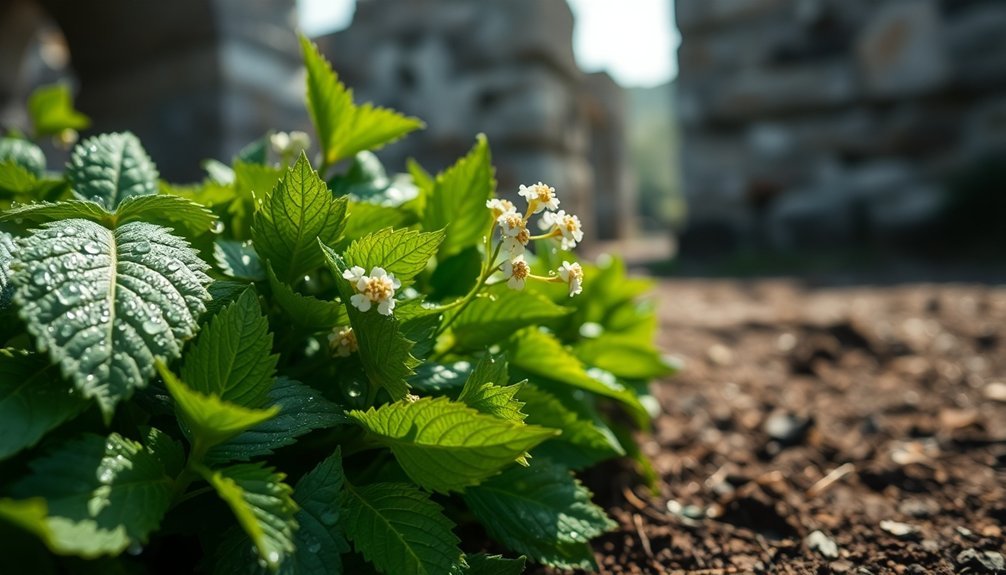
Sacred to ancient civilizations, Spikenard remains one of nature's most treasured musky aromatics.
You'll find this perennial herb growing up to 6 feet tall, with its distinctive maroon stems and compound leaves. When you encounter its dark berries and tiny flowers, you're witnessing the same plant that ancient Egyptians and Romans prized for its prestigious fragrance.
- Used in biblical times for anointing Jesus and in Solomon's Temple incense
- Shares properties with Valerian but provides a more energizing effect
- Supports 15,000 people's income through wild harvesting
- Offers both calming and uplifting aromatherapy benefits
- Works wonders for mature and dry skin care
Today, you'll need to source your Spikenard responsibly, as wild populations face pressure from commercial exploitation.
Consider sustainable suppliers to preserve this ancient aromatic's legacy.
Frequently Asked Questions
Can Plant-Based Musks Trigger Allergic Reactions in Sensitive Individuals?
Yes, you can experience allergic reactions to plant-based musks if you're sensitive. While they're safer than synthetic alternatives, they may still cause skin irritation, respiratory issues, or eye problems in rare cases.
How Long Do Natural Musk Alternatives Typically Last on Skin?
You'll typically get 4-6 hours of wear from natural musk alternatives, but it varies based on your skin type, application method, and environmental factors. Oily skin tends to hold the scent longer.
Do Plant-Based Musks Work Well in Combination With Synthetic Fragrances?
Yes, you'll find plant-based musks blend excellently with synthetic fragrances. They add natural depth and complexity while enhancing longevity. The combination helps create balanced scents that benefit from both natural and artificial components.
Which Climates Are Best for Growing Musk-Scented Plants at Home?
You'll have the best success growing musk-scented plants in temperate climates with moderate temperatures. Choose a spot with well-drained soil, good sun exposure, and USDA zones 3-8 for ideal growth.
Are Natural Musk Alternatives More Expensive Than Synthetic Versions?
Yes, you'll find natural musk alternatives are considerably more expensive than synthetic versions. While synthetic musks cost around $800/kg, natural options like ambrette seed can cost over $28,000/kg – a dramatic price difference.
In Summary
You'll find these five natural musk alternatives offer a sustainable way to achieve that coveted musky scent without relying on animal-derived ingredients. Whether you're drawn to the sweet warmth of ambrette seeds or the earthiness of spikenard, each extract brings its own unique character to perfumery. Try incorporating these plant-based musks into your fragrance journey for an ethical and aromatic experience.
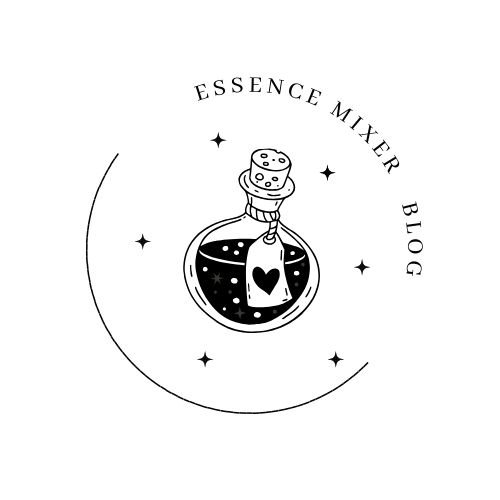
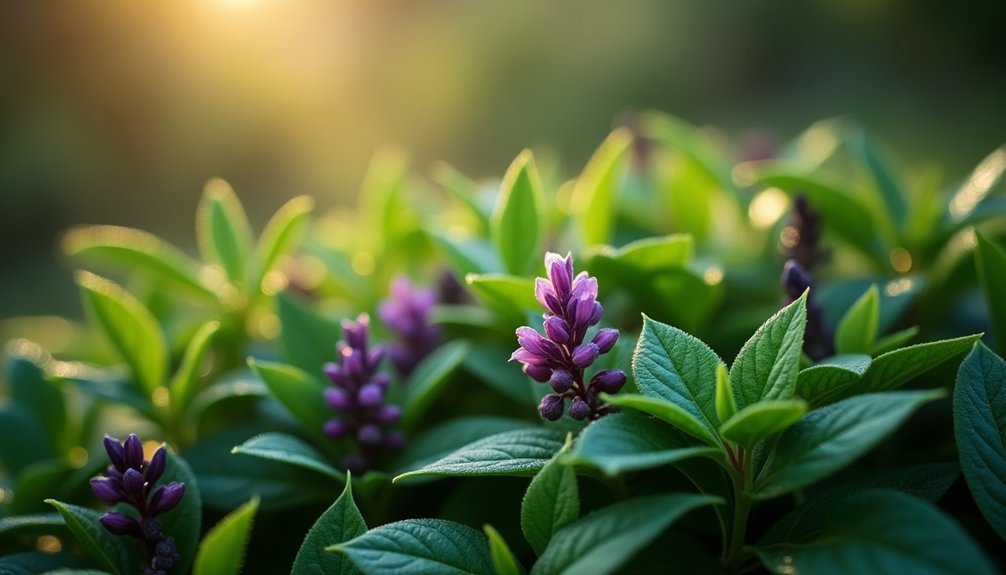
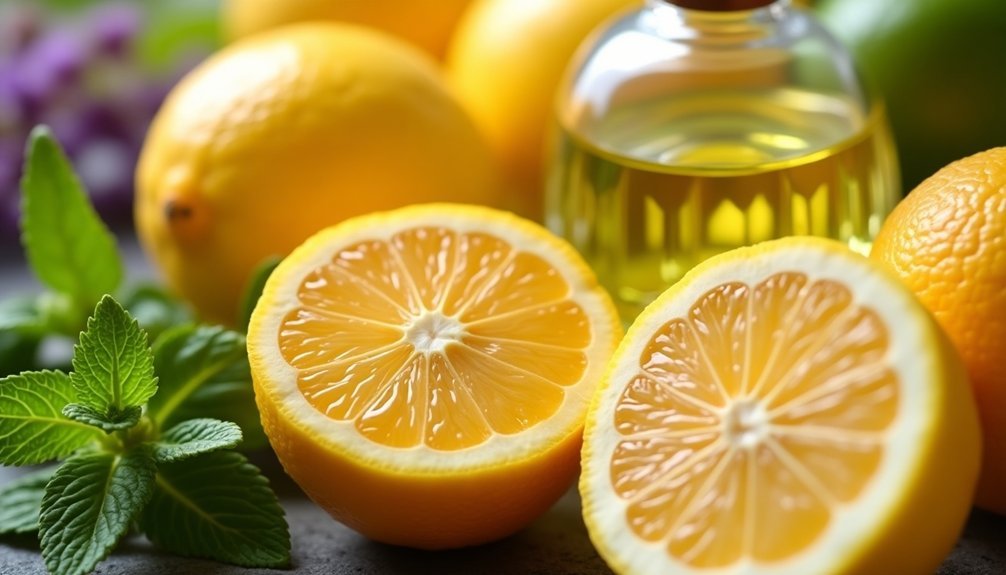
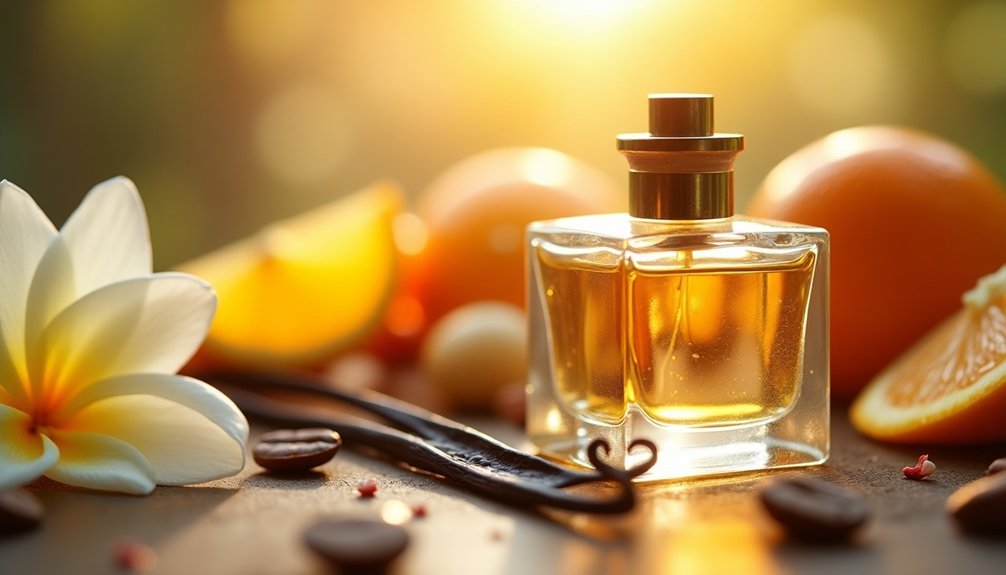
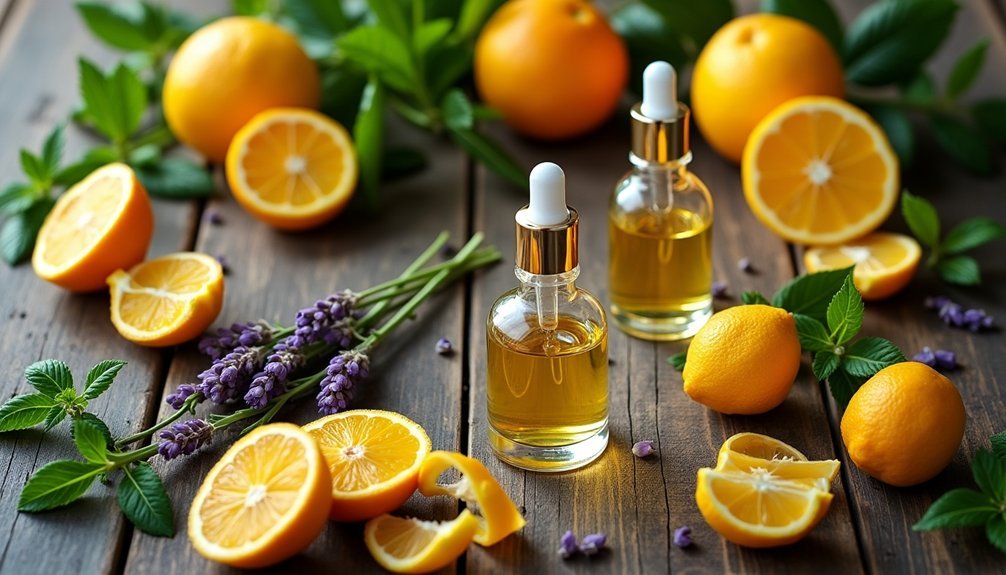
Leave a Reply